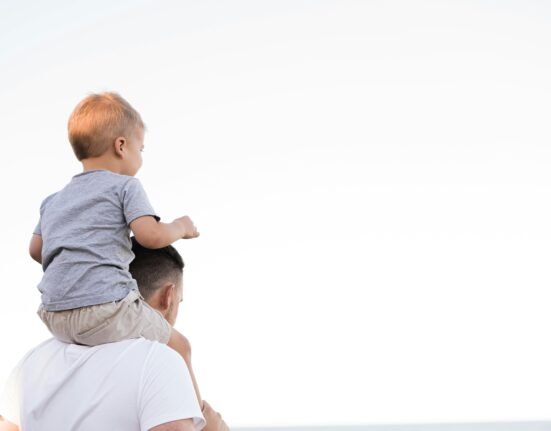By Aparna S
November 3, 2025: Parenting is perhaps the most humbling psychological experiment ever designed —and one conducted in public, without rehearsal. Every parent begins with the same cocktail of emotions: love, hope, fear, exhaustion, and that quiet, recurring question — “Am I doing it right?” Parenting patterns and philosophies have swung like a pendulum over generations. With each new generation, you have a new share of chaos and challenges.
Once upon a time, discipline meant authority — the stern father, the unquestioned rule, the swift consequence. Later came the era of permissive parenting, all warmth and little structure. Now, in a more reflective age, gentle parenting balances empathy with mindfulness. More than the decision making “because I said so” figure , a parent is a guide or a mentor; one who walks with the child, neither ahead of him , nor behind.
Contrary to what the parenting ‘fad’ blogs claim , gentle parenting is not a fleeting trend but a psychological approach rooted in emotional intelligence, neuroscience, and attachment theory. It introduces the concepts of love, respect, and resilience to the next generation.
What gentle parenting really means
Gentle parenting, a term popularized by author and parenting educator Sarah Ockwell-Smith, denotes a mindful, structured way of raising kids. It focuses on four key principles: empathy, respect, understanding, and boundaries. The goal is to guide rather than control, to teach rather than punish. A gentle parent doesn’t ask, “How do I make my child obey?” but “What is my child feeling, and how can I help them learn from this moment?” The difference lies in the emotional message: “I understand your feelings, but rules are rules.” Over time, this becomes a masterclass in emotional regulation, one of the most valuable life skills a
child can learn.
At the heart of it lies attachment theory, proposed by John Bowlby and later expanded by Mary Ainsworth.It says that a child’s early bond with their caregiver lays the foundation for emotional security throughout life. When parents respond consistently and sensitively, children learn that the world is safe and relationships can be trusted. Gentle parenting is an application of this in daily life. It assumes that misbehavior isn’t defiance but communication — a signal of an unmet need or a skill still in development. “Kids do well if they can. When they don’t, there is something wrongs –not with the kid, but with the ones whom they are with”.
Research supports this approach. A study in Developmental Psychology found that children raised with empathetic, respectful discipline showed better long-term emotional regulation and lower aggression levels than those raised in punitive environments. Brain imaging studies from the University of Montreal also align with this, suggesting the neural stress pathways activated with harsh verbal discipline activities and physical punishment are one and the same, heightening anxiety and preventing emotional processing. In simple words, your child obeys you when you shout at him or her not because they understand what is wrong , but simply because it is a “flight or fight “ response to avoid further conflict. Needless to say, the same mistake is repeated and the vicious cycle continues. When parents model calm and empathy, children’s brains learn to mirror those emotional states.It literally helps wire the developing brain toward resilience and compassion.
The myth of “spare the rod, spoil the child”
Gentle parenting doesn’t mean permissive parenting. It does not involve saying yes to all the demands and shielding the child away from frustration. It thrives on boundaries. The rules are agreed upon and explained clearly. The force here is respect, not fear of an authoritative figure. A gentle parent might say, “I won’t let you hit. I see you’re angry, but I’ll help you find another way to express it.” The rule stays intact, but so does the relationship.
Children raised in such environments learn that rules are not arbitrary but relational. They begin to internalise self-discipline because they understand the why, not because they fear the what if.
Why it matters
For both the parent and child, the emotional dividends of gentle parenting extend far beyond childhood. Longitudinal research from Harvard’s Center on the Developing Child shows that children raised by nurturing, responsive caregivers develop stronger stress resilience, higher executive function, and greater empathy in later life. The benefits don’t stop there. Parents who practice gentle approaches report less guilt, fewer power struggles, and greater satisfaction in their relationships with their children. This has profound implications for mental health. Harsh or inconsistent parenting has been linked to increased levels of anxiety, depression and behavioural issues in adolescence. In contrast to this , warm, structured environment promotes emotional stability and competence.
Gentle parenting isn’t easy. It demands self-awareness and emotional regulation on the parent’s part. Responding calmly to a toddler’s meltdown or an adolescent’s sulking isn’t about being perfect—it’s about modeling healthy repair. Saying, “I’m sorry I shouted. I was tired, but that wasn’t okay,” teaches children that adults too can make mistakes and that it’s about not repeating them. The emphasis here is on repair, not perfection.
The principles of gentle parenting remind us that things can be broken or bent, but still rebuild. Perhaps the acceptance of gentle parenting is in the way it makes a quiet yet lasting change. Its power lies in prompting adults to heal their own past wounds so they aren’t passed on to the next generation. Gentle parenting isn’t designed to raise “perfect” children. Instead, it shapes kids into self-aware, kind, emotionally secure human beings who know how to love without fear. And that should be the ultimate goal of parenting—not to clone children into whom we think they should be, but to guide them toward who they already are, with patience, respect, and grace.
(Dr Aparna S is a consultant psychiatrist and an Assistant Professor at the Believers Church Medical College Hospital, Tiruvalla, Kerala. Views expressed are her own and not of an organisation or company.)






